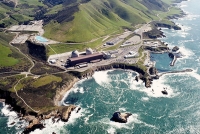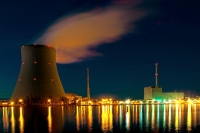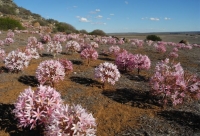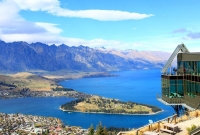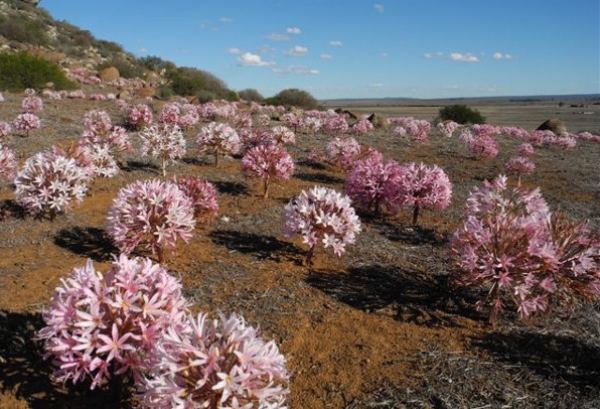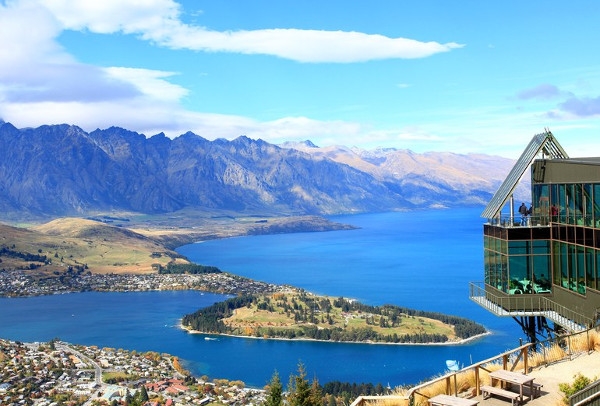
John Shanahan is a civil engineer and past president of Go Nuclear, Inc. and Environmentalists for Nuclear - USA: The debate on catastrophic man-made global warming involves many aspects of physics and chemistry for the atmosphere, oceans, land and all aspects of life for animals, insects and humans. It is complicated and elaborate. Dr. Edwin Berry has taken a physics-based systems approach to form a relatively simple analysis of carbon dioxide from fossil fuels added to the atmosphere. His conclusion is that this additional CO2 does not play a significant role in global warming. This article looks at a simple chemical equation for the role of CO2 in the atmosphere. It shows how important carbon dioxide is for many aspects of life on Earth. Get rid of atmospheric CO2 and life will end. Carbon dioxide is not a pollutant. It is essential to life. Love CO2 and nature.
Viv Forbes, Executive Director of The Salt Bush Club, Australia: Poor policies are taking Australia into tough times. There are four priorities for the 2019 election. Firstly: Decimate the Feral Green Snakes in the Grass. Secondly: Build more Reliable Base-Load Power Stations. Thirdly: Build More Dams and Weirs. Finally: Fight Fire with Fire. We must fix these four issues. Stop draining Australian money to support foreign agendas and the bloated UN bureaucracy. Let’s help Australians instead.
David Legates, Professor of Geography and Climatology, former Director of the Center for Climatic Research, University of Delaware, and a Senior Fellow of The Cornwall Alliance for the Stewardship of Creation: Is a warmer climate and more carbon dioxide a net benefit to life on the planet? The answer to this question is a resounding “YES.” More people die from exposure to cold than heat. A longer growing season is more beneficial to feeding a growing population. Carbon dioxide is plant food. So, what is the climatic benefit of spending trillions of dollars for inaccurate computer model "research," forcing the world to stop using fossil fuels and putting people's lives back to the Middle Ages?
Steve Goreham, Executive Director, Climate Science Coalition of America: He gave this presentation at the Friends of Science 'Climate Dogma Exposed' event in Calgary on May 9th 2017. He says "contrary to what your political leader, professor, and newspaper tell you, global warming is dominated by natural factors. As a result, thousands of climate and energy laws across hundreds of nations, all summed together, are not going to have a measureable effect on Earth’s temperatures."
Vijay Jayaraj, Research associate, Cornwall Alliance for the Stewardship of Creation: Lately, more focus has been on “climate-change deniers” than on the science of climate change. They are called science-denying, narrow-minded and selfish. They face ridicule every day. For example, in “The Depravity of Climate-Change Denial,” economist and New York Times columnist Paul Krugman argued that climate-change denial risks civilization for profit, ideology and ego. But who are the real “climate-change deniers”? (Or “climate deniers”? He uses the terms interchangeably.) Krugman never defined the terms. He failed to quantify the change in Earth’s climate.
James Lovelock, PhD in Medicine, Chemist, Independent Scientist, Environmentalist. The whole universe is in a constant state of change. This article describes how James Lovelock has changed his thinking about man-made global warming. There are many people sounding the alarm about this topic who are never going to change. What is going to happen to the world?
Paul Driessen, senior policy analyst for the Committee For A Constructive Tomorrow: On and on it goes – with more scare stories daily, more attempts to blame humans and fossil fuels for nearly every interesting or as-yet-unexplained natural phenomenon, weather event or climate fluctuation. And yet countering the manmade climate apocalypse narrative is increasingly difficult – in large part because the $2-trillion-per-year climate “science” and “renewable” energy industry works vigorously to suppress such evidence and discussion … and is aided and abetted by its media and political allies.
Viv Forbes, Executive Director of The Salt Bush Club, Australia: It is urgent that all Australian politicians understand the dangers in the Paris Climate Agreement. Here are TEN REASONS to EXIT PARIS NOW. 1) Science not settled. 2) There is no unusual waming. 3) CO2 is not a pollutant. 4Most populous nations will ignore the Paris climate change agreement. 5) Despite 20 years of subsidies, wind and solar still small part of energy production. 6) Australian policies making electricity more expensive. 7) Australia has few options for cheap, reliable power. 8) Australians will be seriously punished by Paris agreement. 9) The agreement will destroy industries & jobs. 10) If the world cools, Australia will quickly need reliable coal power.
Paul Driessen, senior policy analyst for the Committee For A Constructive Tomorrow: Climate Crisis Inc. gets billions to promote imaginary manmade cataclysm – but attacks realists. The climate crisis industry incessantly claims that fossil fuel emissions are causing unprecedented temperature, climate and weather changes that pose existential threats to human civilization and our planet. The only solution, Climate Crisis, Inc. insists, is to eliminate the oil, coal and natural gas that provide 80% of the energy that makes US and global economies, health and living standards possible.
Heartland Institute: The most consequential issues in the climate change debate are “whether the warming since 1950 has been dominated by human causes, how much the planet will warm in the 21st century, whether warming is ‘dangerous,’ whether we can afford to radically reduce CO2 emissions, and whether reduction will improve the climate” (Curry, 2015). Fossil fuels have benefited humanity by making possible the prosperity that occurred since the first Industrial Revolution, which made possible investments in goods and services that are essential to protecting human health and prolonging human life. Fossil fuels powered the technologies that reduced the environmental impact of a growing human population, saving space for wildlife.


